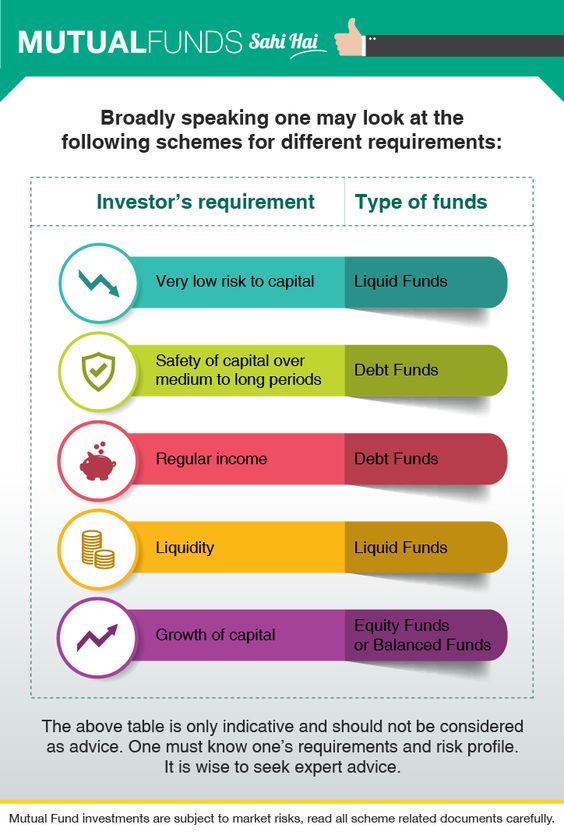Investing in Mutual Fund...

Types of Mutual Funds

SIP and Wealth Creation

Important Factors To Consider While Investing through Mutual Funds
Why is Mutual Funds?
Mutual Fund is a mechanism of pooling resources from general public and investing collected money in securities such as stocks, bonds, and short-term debt. The combined holdings of the mutual fund are known as its portfolio. Investors buy shares in mutual funds. Funds offer both 100% debt to 100% equity and also hybrid products with combination of equity and debt.
What Mutual Fund is suitable for you?
Growth: This is the most common objective of a Mutual Fund. It means a fund where you get an increase in your investment over a small or long term. This type of fund is invested in small to large cap stocks. Income: This type of fund is suitable for investors who are looking for a reliable source of income.
How do you evaluate Mutual Fund Performance?
1.Risk adjusted returns. They are the calculative returns your funds make compared to the risk indicated over the period of time.
2.Benchmark.
3.Relative Performance with peers.
4.Quality of stocks in the portfolio.
5.Track record and competence of the fund manager.
What is the role of Fund Manager?
When individuals and institutions invest in a fund, they actually invest in the fund's manager. He is responsible for managing the fund's investments and ensuring that the fund's strategy is aligned with its goals. He is also responsible for the overall operation of the fund, from customer service to risk management.
What are Tax Saving schemes?
Planning your taxes is an integral part of your financial planning. Sec 80C of the Income Tax Act allows you to claim deductions from your taxable income by investing in certain investments. One of the most popular Sec 80C investments is in tax saving mutual funds or Equity Linked Savings Scheme (ELSS).
Are Mutual Funds safe to invest?
Mutual funds have market risk can (and often do) fluctuate in value. This means that, in some cases, an investor can end up with less money than they initially invested. But this market risk is also what enables investors the opportunity to grow their wealth over time.
